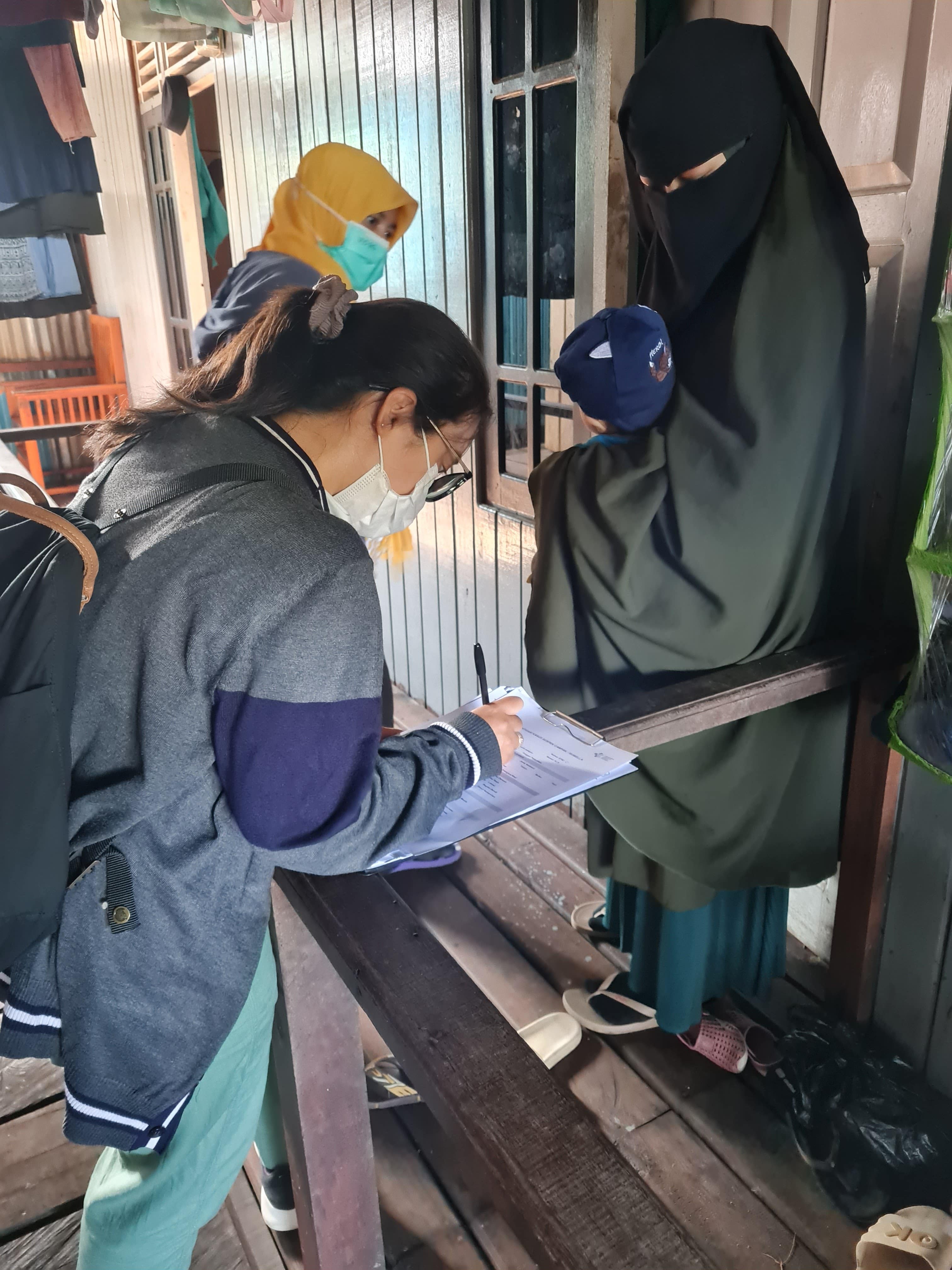Addressing the measles outbreak in Teluk Bintuni presented a significant challenge, mainly due to the reluctance of parents and individuals to seek essential medical care when they or their children exhibit symptoms such as fever and rash. This hesitation is worsened by a lack of awareness within the community regarding the highly contagious and dangerous nature of measles.
A surge in suspected cases of measles began in Teluk Bintuni District, West Papua, in January 2023. It is believed to be connected to a confirmed case identified in December 2022. As of March 3rd, there have been a total of 37 cases, with a significant 80% of the cases occured in Bintuni village, which falls under the jurisdiction of Puskesmas Bintuni.
On 7-10 March 2023, WHO Indonesia, provincial health office of West Papua and UNICEF, visited Teluk Bintuni District. They conducted various activities, including a review meeting on the response to the measles outbreak, surveillance in hospitals and the community, and the ongoing implementation of the Outbreak Response Immunization.
During the measles outbreak in Teluk Bintuni, the surveillance team from the district health office and Puskesmas Bintuni actively searched for cases every day. They visited villages with reported measles cases, interviewed residents to identify individuals with symptoms like fever and rash, and scoured densely populated areas like markets and fishing villages. Additionally, they provided Vitamin A for immediate case management and ensured that all identified cases and patients were reported through effective collaboration between the health department and hospitals.
"Most parents reject hospitalization due to reasons such as lack of caretakers at the hospital, absence of other family members, and the parents' need to work," Farida, a surveillance officer from the Teluk Bintuni district health office, explained. To address these challenges, coordination was established with hospital clinicians, who played a crucial role in convincing parents to provide adequate medical care for their children within the hospital setting. This involved explaining the potential risks of measles complications if treatment was delayed and offering educational support to parents.

The surveillance team, consisting of members from the district health office Teluk Bintuni and Puskesmas Bintuni, proactively conducted door-to-door visits to identify more measles cases. Upon finding a case, they fill out an investigation form and check the affected child's immunization status. To reduce complications, they also provide Vitamin A supplementation for each additional case. (WHO/Aning Isfandyari)
Active case finding plays a pivotal role in managing a measles outbreak by swiftly identifying cases, enabling effective case management, and expediting outbreak control. It empowers healthcare personnel to pinpoint cases and their close contacts, leading to the isolation of infected individuals and the implementation of vital control measures. This proactive approach not only identifies unvaccinated or under-vaccinated individuals but also provides an opportunity to educate them about the importance of vaccination, potentially increasing community vaccine coverage. The effectiveness of active case finding depends on the formation of a dedicated surveillance team during a measles outbreak response, ensuring the optimal execution of surveillance activities, particularly the active search for cases.
This activity is supported by the Australian Government
Written by Aning Isfandyari, Vaccination Technical Officer, WHO Indonesia.
